
5 minute read
Eco Wines in California
Eco-Friendly Wineries
Wine lovers wanted in Northern California
Advertisement
BY: MARGARET MURRAY
California’s dedication to sustainable wine growing means producing high quality grapes and wines while protecting the environment, being a good neighbor and employer, and maintaining a vibrant long-term business. Along with the benefit of a lower impact on the environment, sustainable wine growing and production often yield superior vintages.
Wineries who have integrated sustainable practices into their daily operations to receive an official certification for their commitments are audited on such factors as water and wastewater management, waste management and energy management systems.
There is no use of harmful pesticides, herbicides, fungicides and chemical fertilizers. It also means that no additives were used, such as artificial preservatives. You can also get wine which is organically farmed.
Sonoma County and Napa Valley are not only world renowned wine regions, but they are also leaders in sustainable winery practices. More than 65 per cent of Napa Valley Vintners’ members participate in the Napa Green Certified Winery programs, and more than 40 wineries have comprehensive Soil-to-Bottle certification in both.
Here are a number of great wineries incorporating sustainability and taking care of the land for future generations.
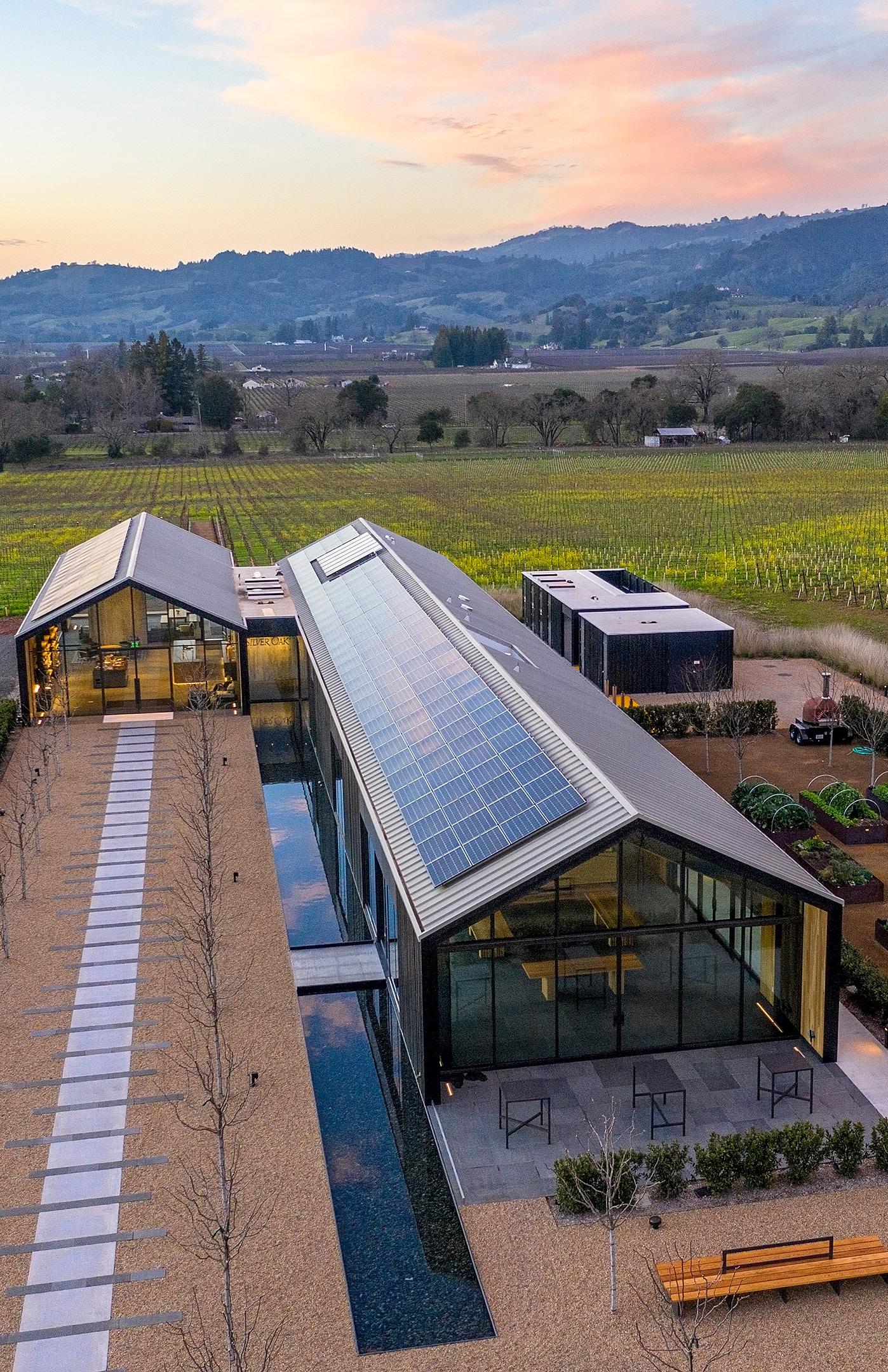
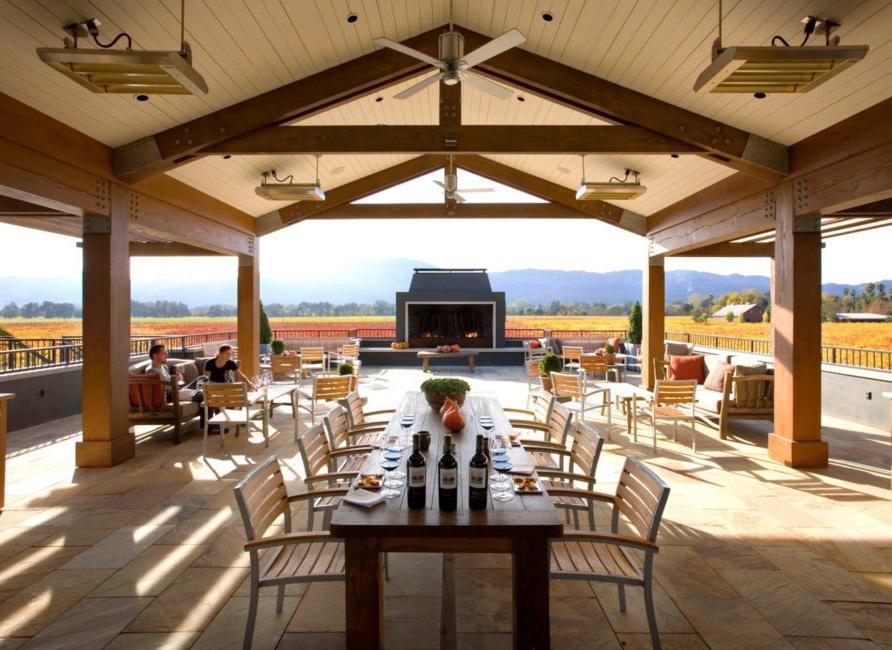
Silver Oak became certified LEED Platinum (Leadership in Energy and Environmental Design) in 2017. Silver Oak prides itself in its eco conscious practices and multi-generational winery heritage. Its Oakville winery features more than 1,000 solar panels and has many water conservation strategies in place. As a family-owned, multi-generational winery, their environmental stewardship and social responsibility extends from the vineyards and wineries to the tasting rooms. Operating with a thoughtful approach at every step of the wine making process is not only the right thing to do; they firmly believe it results in better wines.
The Round Pond Estate is a well-respected ultra-premium Cabernet Sauvignon producer, situated in the heart of Rutherford, California. This winery has been famous for its worldclass red wines for more than a century. The property spans 362 acres of planted vineyards, including Red Barn Ranch, Hill’s Vineyard, M-Bar Ranch, Round Pond Vineyard and MacDonnell Vineyards. Round Pond Estates is dedicated to maintaining the integrity of the land to ensure its continuing bounty for generations to come, Round Pound Estate Winery uses only sustainable farming practices with natural processes that promote soil health, including erosion control, native cover crops and composting in their viticulture program.
Anaba Wines, a family owned winery in Sonoma, CA was the first winery in Northern California to use wine as the energy source to help power its operations. They source their grapes from their preferred, and in many cases exclusive vineyards. Rootstocks and grape clones are carefully selected based on each vineyard’s soil to assure each variety is suited to its environment. They employ canopy management techniques to optimize fruit maturation and color preservation. Anaba Wines adhere to sustainable viticulture practices in the vineyard and the cellar, making sure that the environment is paramount in their efforts.
Odette Estate Winery is a LEED Gold certified winery and member of the California Certificate Organic Farmers (CCOF). The winery utilizes 100 per cent organic farming methods. It has an 8500 square foot planted living roof and 2500 square feet of solar panels that generate 30,000 kilowatts of solar power per year. The tale of Odette is that she is a fabled princess…a mistress…a judge…a heroine. Odette is both of antiquity and modernity. She can be found in works of fiction and tales from history. Odette encapsulates this winery’s inspiration for the property – femininity, strength and power.
St. Supéry Estate Vineyards & Winery is a 100% Estate Grown sustainably farmed winery situated in the Rutherford growing region. It was recognized as the Global Winner for Sustainable Wine Tourism by Great Wine Capitals. Napa Green is an environmental certification program for vineyards and wineries. This program is one of the most comprehensive environmental accreditations in the wine industry, covering every step from soil to bottle and requiring continuous improvement to maintain our certifications. All of our land is certified Napa Green including our culinary garden.
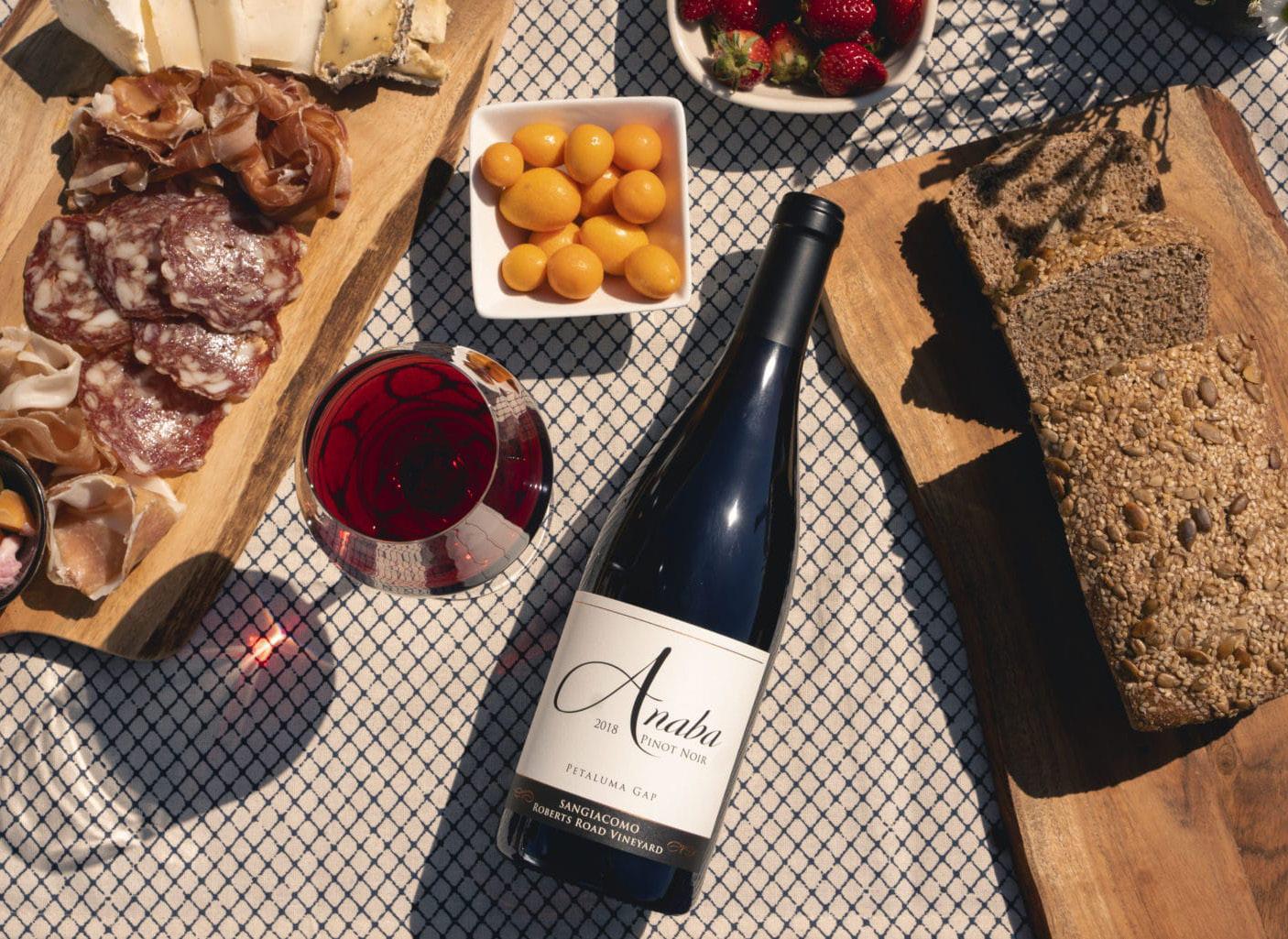
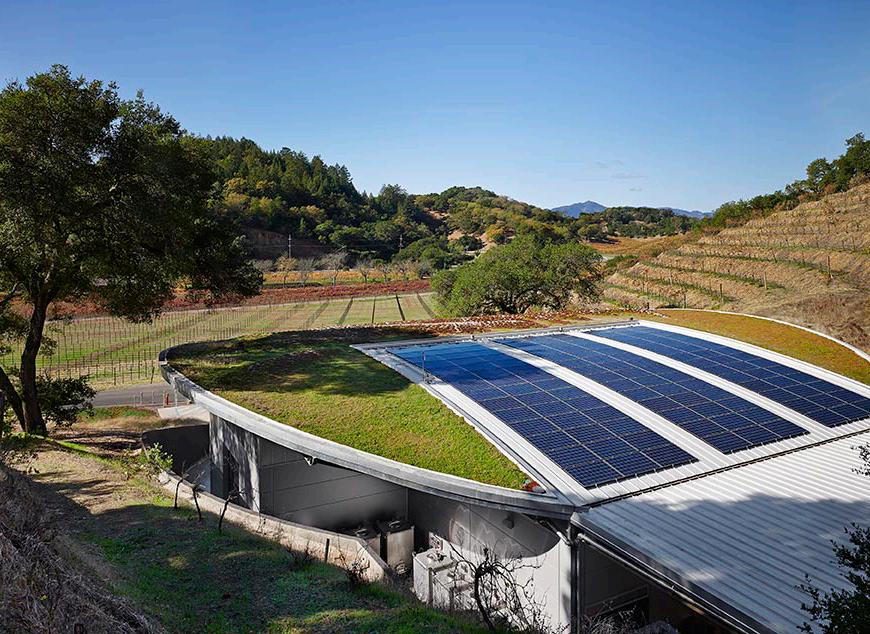

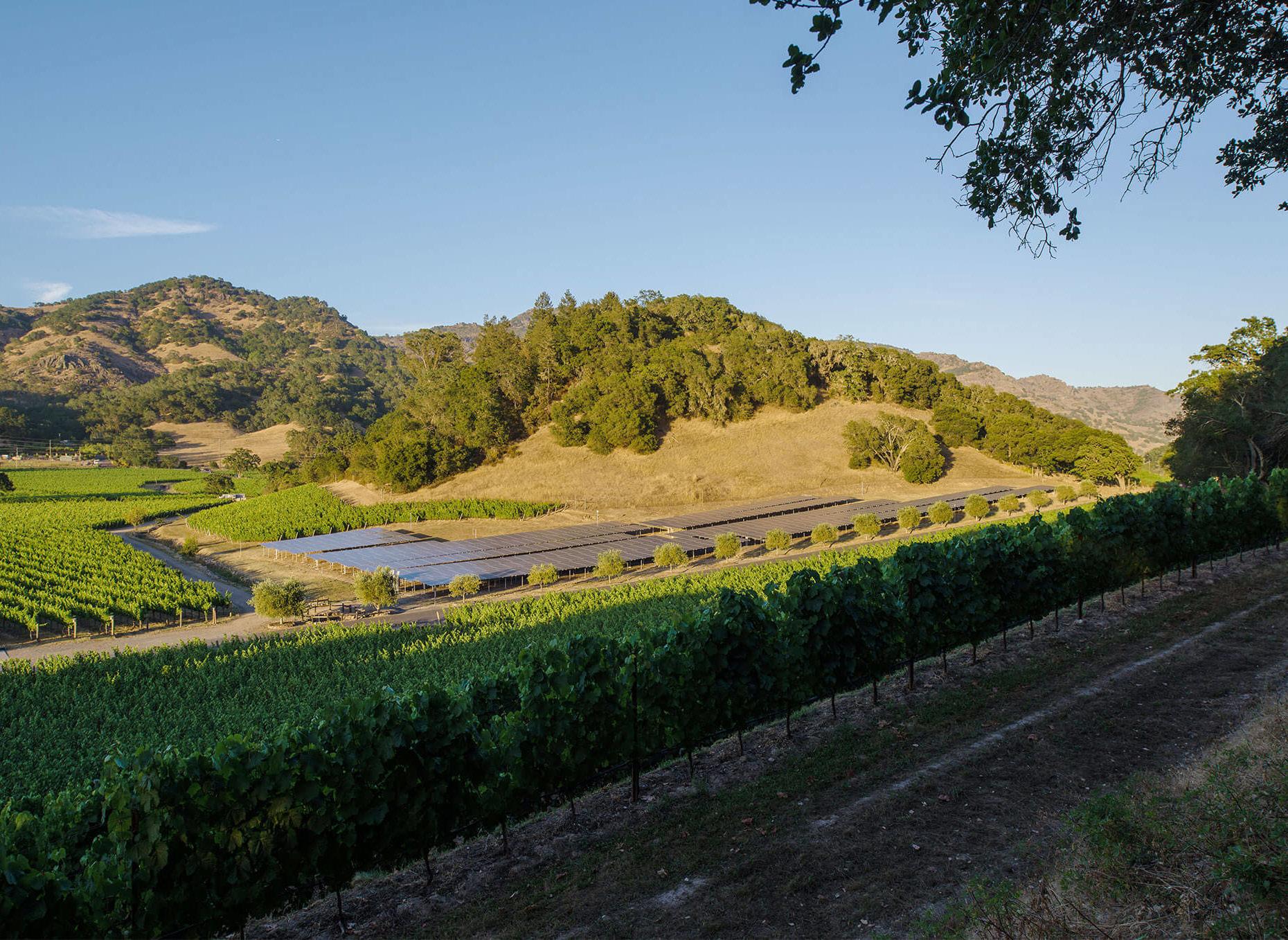
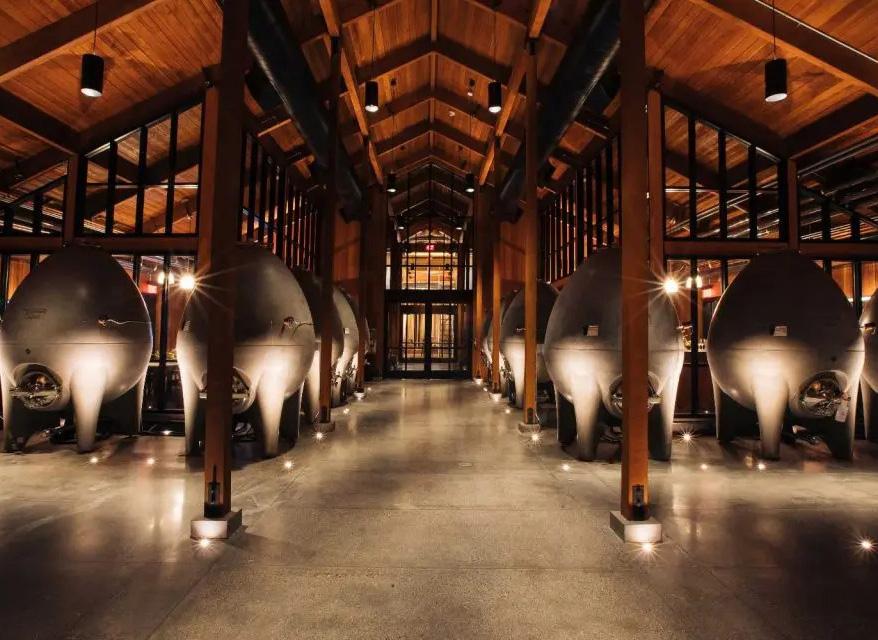
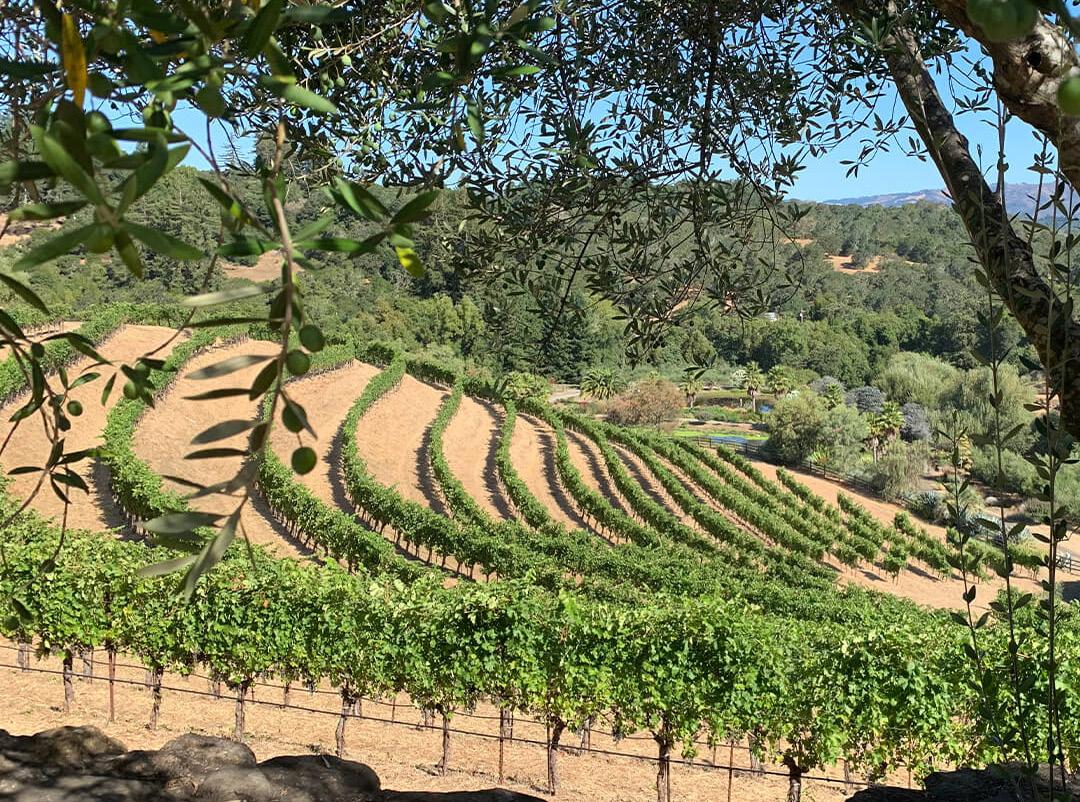
Cliff Lede Vineyards is based in Yountville, CA. It uses recycled water for irrigation on its wineries, and organic fertilizers for maintaining the soil. The state of the art winery, completed in 2005, and, designed by world renowned architect Howard Bracken combines time tested techniques with innovative technology. Built into a hillside and contiguous with the caves, the winery features the White Room, name after the Beatles While album, which looks over both the striking tank room on one side, and the breathtaking vineyards and rugged landscape of the Stags Leap District on the other.
Cakebread Cellars is a Napa Green Certified Winery. In 2010, Cakebread Cellars reduced total waste by 12 percent and recycled 81 percent of it. All of its vineyards promote sustainable farming practices such as restoring fish and wildlife habitats, and improving water quality in local streams. Quality and sustainability have been Cakebread cornerstones since 1973. As one of the early industry leaders in their efforts, they are committed as a family winery to protect the land for future generations. They were the second California winery to achieve Napa Green certification.
Benziger Winery, located in Glen Ellen, CA has been in operation for over 30 years. They have farmed their range on Sonoma Mountain and searched Sonoma Country for the most distinctive and expressive vineyards. Once discovered they are committed to tend these sites using certified biodynamic, organic and sustainable farming methods. Their wines have character as well as conscience, proving to be not only good in the glass, but good for the environment too.









